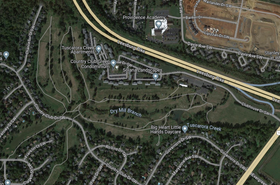Amazon Web Services (AWS) and Swedish telecoms company Ericsson have developed a 5G machine vision system for a Hitachi electric vehicle factory.
The system has been deployed as a trial at the Hitachi Astemo Americas' plant in Berea, Kentucky, and is designed to spot defects in the production line automatically, using real-time digital video, artificial intelligence (AI), Edge-to-cloud technologies, and private 5G.
Feature - What Edge computing brings to the manufacturing sector
The system used Ericsson's Private 5G offering, which provides connectivity through a single server dual mode core, and the AWS Snowball Edge device.
The Snow Family offerings are devices with computing resources that can collect and process data at the Edge or physically export it to the cloud, as well as supporting Amazon EC2 instances, IoT Greengrass, and Kubernetes deployments. They range in size from the 2.1kg AWS Snowcone appliance, to the Snowball and up to the AWS Snowmobile, a container-sized device pulled by a semi-trailer truck, for commercial customers. The Snowball device is specifically designed to handle more compute-intensive workloads at the Edge.
A real-time 4K video feed of the factory line would be collected and fed into the private 5G network, where machine learning models would be used to detect defects. The high-resolution cameras can spot defects at a sub-millimeter level, and the overall system can simultaneously inspect 24 assembly components.
“The best news about this collaboration is that it is not about capabilities that will be available at some distant point in the future,” said Thomas Noren, head of PCN commercial and operations, Ericsson.
“These solutions can be deployed today in manufacturing and enterprise environments to deliver a range of early adopter competitive advantages. As global technology leaders, Ericsson AWS and Hitachi America R&D have shown how collaboration can drive innovation.”
Sudhanshu Gaur, VP of R&D for Hitachi America and chief architect at Hitachi Astemo Americas, says. “The combination of private 5G, cloud, and artificial intelligence/machine learning automated technologies has the potential to revolutionize the way we manufacture products, and we are excited to be at the forefront of this innovation.”
Ericsson has also previously deployed private 5G networks at a manufacturing site in Tallinn, Estonia, and in South Africa to aid with the country's mining industry.
A similar deployment was trialed at a Fujitsu data center in November 2022. The Yokohama data center also saw a private 5G network deployed to work alongside a 4K camera-equipped robot that could patrol the facility and, via AI, detect any abnormalities.
Several telecom providers have launched private 5G offerings in the last few months. April of this year saw Vodafone launch its Mobile Private Network offering and, in August, Virgin Media O2 Business launched a commercial plug-and-play 5G stand-alone private network offering.







